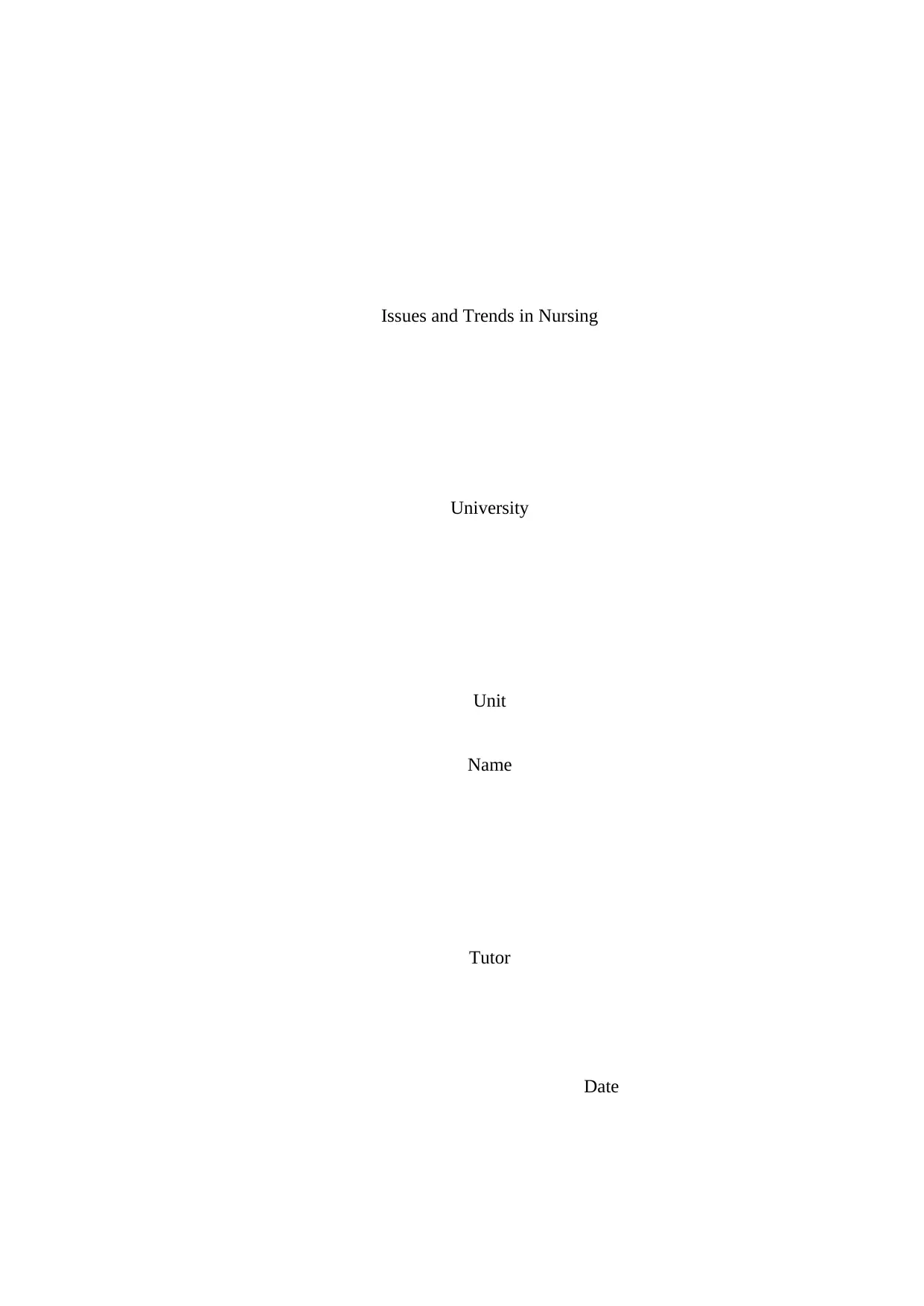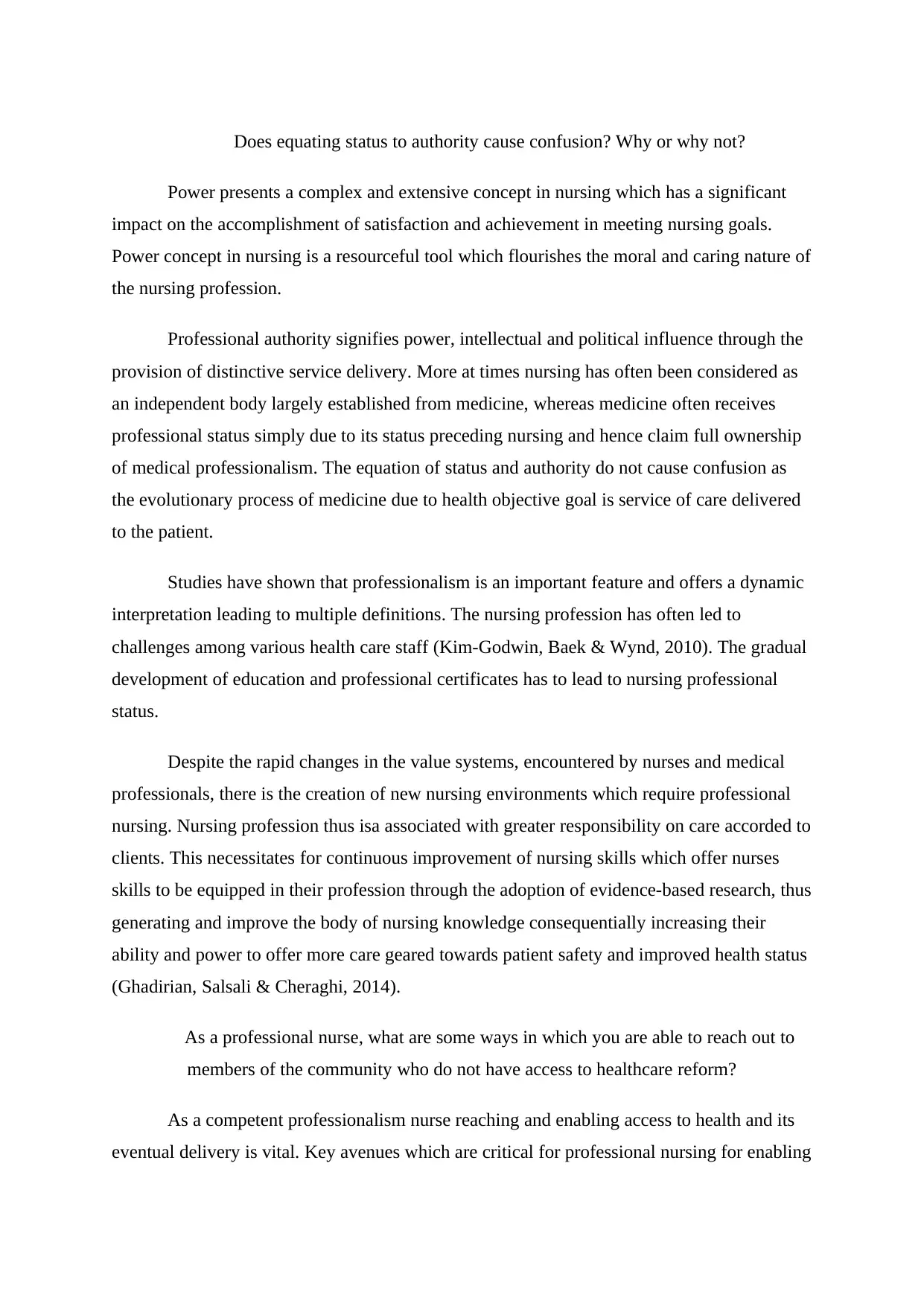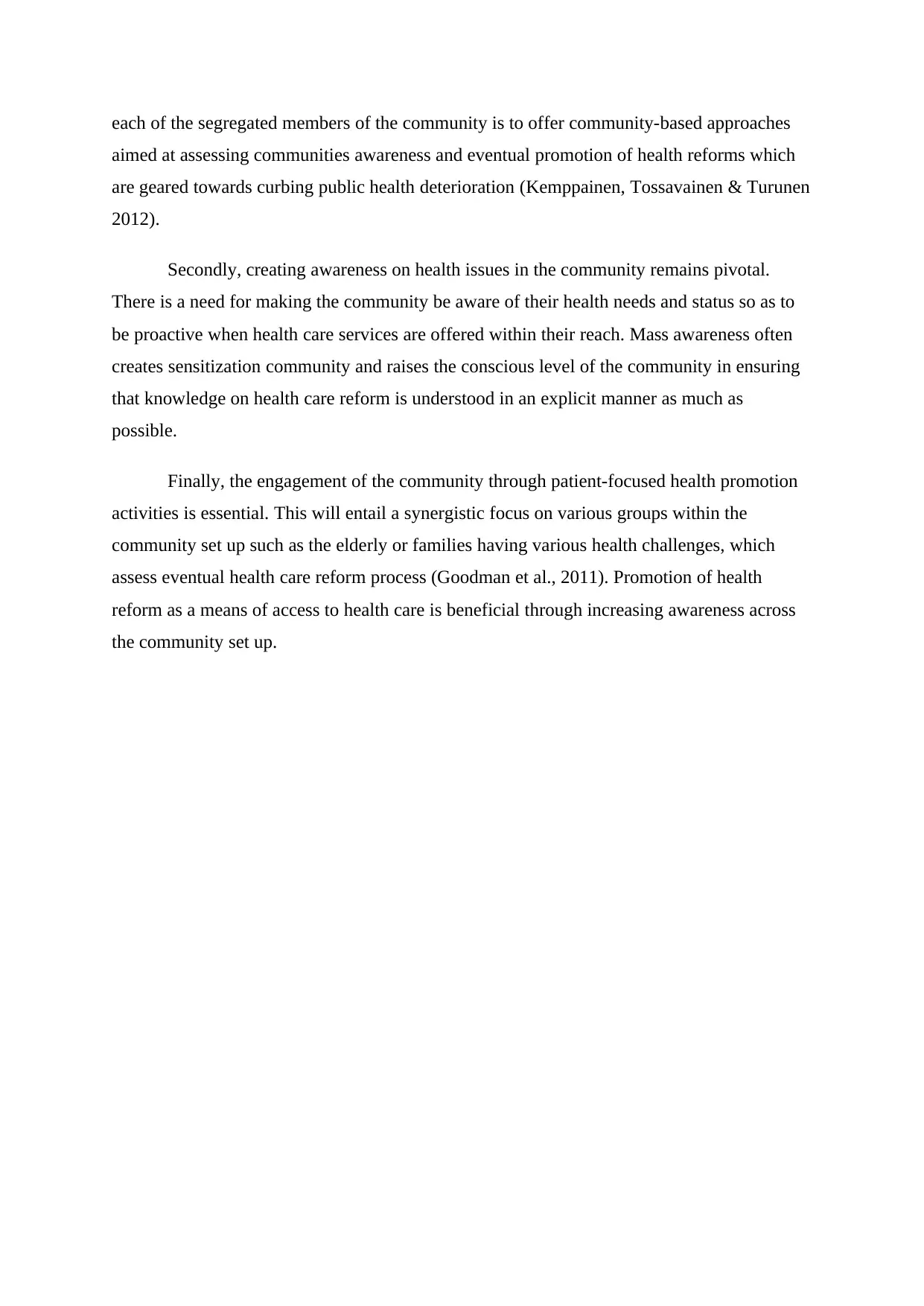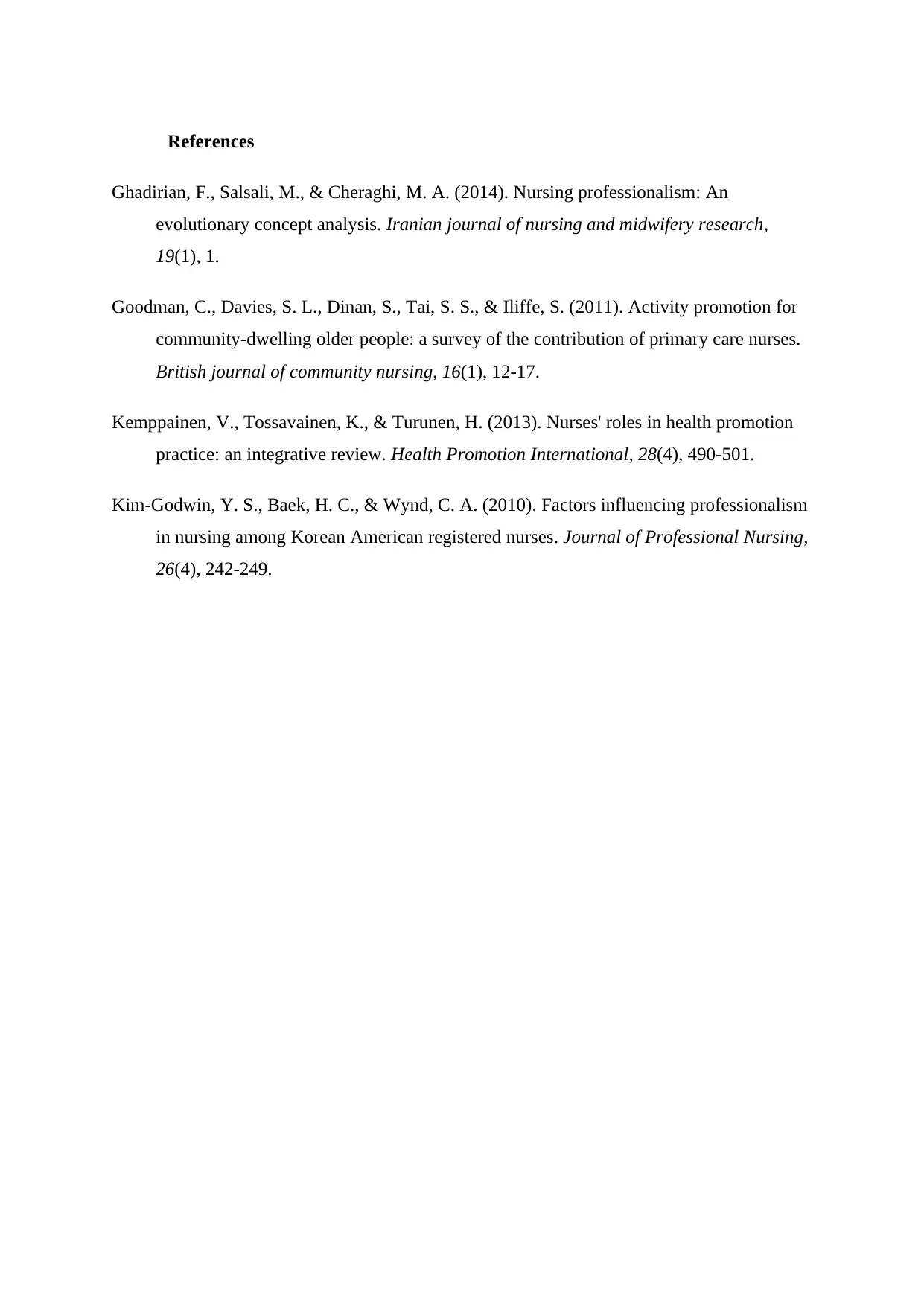Analyzing Nursing Issues: Authority, Status, and Healthcare Access
VerifiedAdded on 2023/04/20
|4
|753
|478
Homework Assignment
AI Summary
This assignment delves into critical issues and trends in nursing, addressing whether equating status with authority causes confusion, emphasizing that the evolutionary process of medicine is geared towards patient care. It further explores how professional nurses can reach out to community members lacking access to healthcare reform by using community-based approaches, creating health awareness, and engaging in patient-focused health promotion activities. The importance of continuous improvement of nursing skills and the adoption of evidence-based research is highlighted, increasing nurses' ability to provide better care and improve patient safety. The assignment concludes by stressing the need for nurses to promote health reform as a means of increasing healthcare access across communities.
1 out of 4











![[object Object]](/_next/static/media/star-bottom.7253800d.svg)